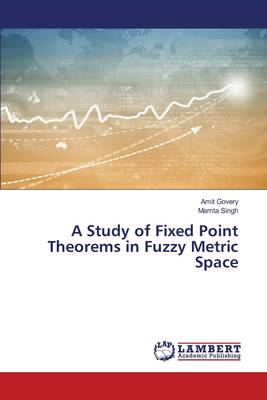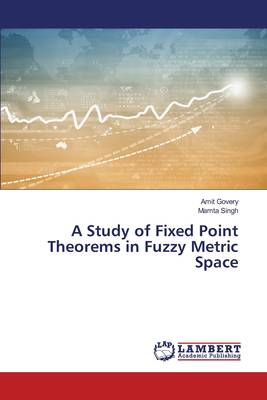
- Afhalen na 1 uur in een winkel met voorraad
- Gratis thuislevering in België vanaf € 30
- Ruim aanbod met 7 miljoen producten
- Afhalen na 1 uur in een winkel met voorraad
- Gratis thuislevering in België vanaf € 30
- Ruim aanbod met 7 miljoen producten
Zoeken
€ 55,45
+ 110 punten
Omschrijving
The concept of fuzzy sets and fuzzy logic was introduced by Professor Lofti A Zadeh in 1965. The success of research in fuzzy sets and fuzzy logic has been demonstrated in a variety of fields, such as artificial intelligence, computer science, control engineering, computer applications, robotics and many moreIn the book we adopt the notion of fuzzy metric space due to George and Veeramani [14] which is a modification of the notion of fuzzy metric space as studied by Kramosil and Michalek [29]. The notion of fuzzy metric space by George and Veeramani has many advantages in analysis as many notions and results from classical metric spaces can be extended and generalized to the setting of fuzzy metric spaces, for instance: the notion of completeness, completion of spaces as well as extension of maps
Specificaties
Betrokkenen
- Auteur(s):
- Uitgeverij:
Inhoud
- Aantal bladzijden:
- 144
- Taal:
- Engels
Eigenschappen
- Productcode (EAN):
- 9783330331679
- Verschijningsdatum:
- 16/06/2017
- Uitvoering:
- Paperback
- Formaat:
- Trade paperback (VS)
- Afmetingen:
- 152 mm x 229 mm
- Gewicht:
- 222 g

Alleen bij Standaard Boekhandel
+ 110 punten op je klantenkaart van Standaard Boekhandel
Beoordelingen
We publiceren alleen reviews die voldoen aan de voorwaarden voor reviews. Bekijk onze voorwaarden voor reviews.











